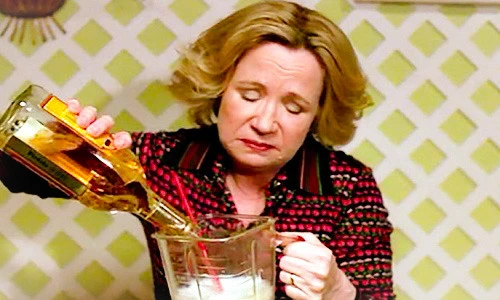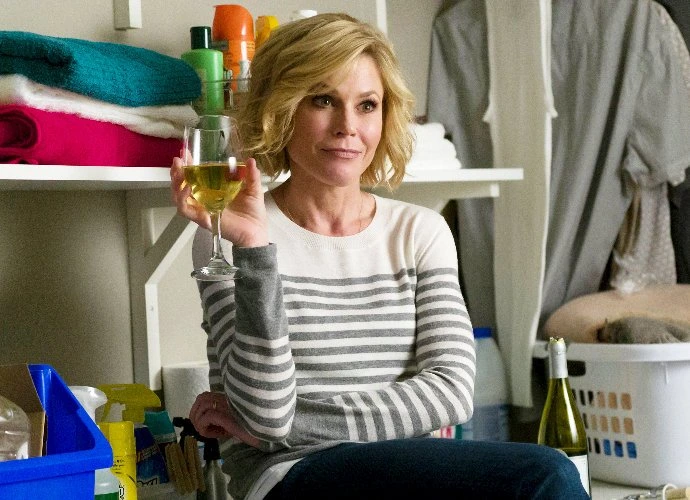Have you ever considered how real-life struggles can be turned into jokes on your favorite TV show?
It’s concerning when a woman battling Alcoholism is portrayed as a comedic character seeking compassion from a world that only laughs.
This media portrayal can desensitize society to the genuine pain and struggles of Alcoholism in women.
Despite being a severe issue with deep roots in history, it has been twisted into a punchline on both screen and page.
This article aims to break down the media’s portrayal of female Alcoholism and highlight the negative impacts of those portrayals.
It advocates for a more responsible and sensitive approach to this issue to increase empathy and understanding for those affected by Alcoholism.
Understanding Female Alcoholism
Alcoholism is a chronic disease characterized by uncontrolled drinking and an obsession with alcohol.
It can manifest in various ways, including increased tolerance, withdrawal symptoms, and an inability to limit alcohol consumption.
Recently, more women have been struggling with this addiction, and studies show that alcohol use and misuse among women are becoming more prevalent, posing serious public health risks.
According to the National Institute on Alcohol Abuse and Alcoholism (NIAAA), about 9.1% of females aged 12 and older in the United States have experienced alcohol use disorder (AUD) in the past year.1
The consequences of Alcoholism in women are multifaceted, spanning physical, mental, and social domains.
Excessive alcohol intake can lead to liver diseases, heart problems, and an increased risk of breast cancer.
Mentally, it can result in mood disorders, heightened anxiety, and cognitive impairments.
Socially, female alcoholics may face isolation, broken family ties, and societal stigmatization.
It is crucial to recognize and address the unique challenges and implications that female alcoholics face to provide them with holistic support and treatment.
The “Funny” Facade of Alcohol Abuse in Media
It’s not just about what’s on the screen or the page.
It’s about what these portrayals communicate to you, your children, and society.
Accurate media representation is crucial because it shapes perceptions and influences opinions.
Handling carelessly risks reinforcing stereotypes, undermining real struggles, and perpetuating misconceptions.
The “drunken woman” trope, often wrapped in layers of humor and irony, has been embedded in American media for decades.
This characterization typically showcases women, especially those at the helm of their households, in a comedic light, using their struggles with Alcoholism as a punchline rather than a genuine concern.
It’s a scene we’ve all come across: a character downing glasses of alcohol, their antics leading to laughter and applause.
What might seem like a harmless joke at first glance can, over time, normalize and even glamorize behaviors related to alcohol abuse.
You might think, “If it’s funny when they do it, what’s the harm in me trying it too?”
But this mirroring can be dangerous.
The Dark Roots of Female Alcoholism Portrayals
Origins of the Stereotype: A Time of Suppressed Rights
To comprehend the trope, it is necessary to examine the era in American history when women were restricted to rigid societal roles.
Due to their limited rights and freedoms, many turned to alcohol as a source of comfort despite the harm it caused.
This was a common practice during that period.
While some women used alcohol as a way to rebel against the patriarchal system, many others used it to deal with the suppression of their voices.
In addition, women who were mothers were often responsible for the majority of the emotional labor in the household, all while maintaining a cheerful facade not to arouse suspicion.
The Colonial Era: Alcohol as Daily Bread
In the Colonial era, alcoholic beverages such as beer and hard cider played a significant role in daily life.
Women, in particular, were responsible for brewing as part of their domestic duties.
However, with increasing societal pressures, some individuals turned to these drinks for comfort, laying the groundwork for problematic drinking.
The 19th Century: Temperance and Rebellion
During the 1800s, the Temperance Movement gained momentum due to the excessive consumption of alcohol by Americans.
This led to various societal issues, including domestic violence at home and child endangerment/neglect.
While some American women advocated for sobriety, others faced their addiction silently, which was made worse by societal constraints and expectations.
The Roaring Twenties and Prohibition: A Double-Edged Sword
Flappers and Forbidden Drinks
The 1920s was a significant change, characterized by jazz music, flappers, and speakeasies.
Despite the prohibition of alcohol, it continued to thrive in secret places.
While this era represented freedom for many women, it also presented a paradox.
Some women found themselves trapped by the substance they were celebrating as they danced the night away.
Battling Bottles and World Wars
In America before the World Wars, numerous women found solace in drinking as they sought refuge from the societal pressures and expectations that burdened them.
However, when the wars began, women were forced into new roles, such as working in factories, caring for wounded soldiers, and managing households alone.
While these roles were empowering for some, they were not without their unique stresses.
After the wars ended, soldiers returned home, and societal roles and norms were reorganized.
For a few women, this adjustment was difficult, and they turned to alcohol as a companion in celebration and a crutch in coping.
It is crucial to understand and empathize with the complex experiences of women during these turbulent times, recognizing that their relationship with alcohol was closely linked to the broader societal trends of that era.
Although strides have been made in recognizing Alcoholism as a health concern, alcoholic women’s struggles remain underrepresented due to historical stigmas that make it difficult to seek help openly.
Blurred Lines and Behavioral Influence
Watching something funny on screen can have a subtle impact on the choices you make in real life.
You might view certain behaviors as acceptable or glamorous if they are repeatedly shown humorously, without real-world consequences.
This can lead to a crossover effect from media to personal perception, making distinguishing between fictional and real tricky.
Notable Portrayals:

Kitty Forman from “That ’70s Show.”
Whenever Kitty faces an issue, she humorously reaches for a drink.
Although loved, her character’s struggles with alcohol are often trivialized, turning poignant moments into fleeting laughs.

Claire Dunphy from “Modern Family.”
Although her character isn’t centrally defined by alcohol, she is commonly seen with a wine glass.
The occasional jokes about her reaching for a wine bottle after a stressful day echo a broader trend in TV comedy.
While fictional, characters can shape views of real-life struggles.
Empathetic portrayals are essential.
Female characters can be head-of-the-house and have addiction problems.
Implications of Comedic Portrayals
The Laughter that Silences Reality
Sometimes, we may find ourselves laughing at a situation that we are familiar with, even if it seems exaggerated.
However, we should be aware that humor can sometimes mask a severe issue, such as Alcoholism.
As the saying goes, “It’s all fun and games until someone gets hurt.”
When the media uses humor to depict female Alcoholism, they often overlook the harsh reality of addiction.
They don’t show the sleepless nights, the physical and mental health challenges, or the strained relationships that come with it.
This genuine pain and struggle are often hidden behind a veil of laughter.
But we should remember that these issues are not a joke, and they have been happening for a long time, even before women had equal rights.
Unraveling Gender Stereotypes
When a mother’s alcoholic struggles become a running gag, it subtly reinforces several gender stereotypes.
The idea that women, especially mothers, must always have it together and can’t have the same vulnerabilities as others is perpetuated.
Such portrayals can lead one to believe that women are, or should be, immune to such struggles.
This sets an unrealistic standard and stigmatizes those who don’t, or can’t, meet it.
In the reality of having characters that normalize such addictive behaviors as mom being drunk all the time, and we treat it as a joke, it’s normalized in society so women can drink all the time.
No one sees it as a problem.
And that is the problem.
The Consequences of Misrepresentation
Female Alcoholism is often overlooked and undervalued, leading to inadequate support and resources for affected women.
The seriousness of this issue is downplayed, causing many who desperately need help to feel misunderstood, ridiculed, or judged, making recovery even more challenging.
Reading Between the Laughs
You aren’t just being entertained when you watch your favorite show or read the latest bestseller.
You’re also absorbing behaviors, values, and norms that are presented to you either consciously or subconsciously.
Media, in its various forms, can shape your view of the world and influence your beliefs and actions.
Therefore, it’s essential to recognize and critically analyze the glamorized or trivialized behaviors within these mediums.
Reframing the Narrative
Acknowledging that media significantly impacts society rather than just reflecting it is essential.
This responsibility lies with creators, writers, and consumers to challenge and alter these portrayals.
By comprehending the historical origins and implications of the “drunken woman” stereotype, we can approach female Alcoholism with the compassion and gravity it warrants.
From Shadows to Spotlight
Alcoholism among women is a serious matter that should not be taken lightly.
It has its roots in historical events that have led to harmful stereotypes.
By addressing this issue with empathy and understanding, we can help break down these negative stereotypes and support those struggling with alcohol addiction.
Understanding the Silent Struggles: Drunk Mothers as Heads of Households
A Familiar Setting with an Altered Lens
It’s a common theme in many TV shows and movies, portraying an alcoholic woman as a mother or homemaker.
This trope may seem like a product of creative writing, but it has deep roots in our culture.
The media often uses this narrative, presenting the character’s struggles humorously and ironically.
This is because historically, the stereotype reflected real-life situations in American society, making it relatable to viewers.
So why is the household setting frequently chosen?
It’s because it resonates more with audiences and reinforces the stereotype.
The Invisible Weight They Bear
Many mothers bear a significant and often unseen burden of responsibility as they lead their families.
You may know or be one of these women who wake up each day carrying the weight of the world on their shoulders, tending to the needs of every family member.
As the backbone of the household, there is an expectation that you are always solid and reliable.
This pressure becomes even more intense for mothers who struggle with Alcoholism.
Behind Closed Doors
Beneath the facade of happy family photos and an orderly home, these mothers are fighting a personal battle.
Alcoholism is not just a harmless habit but rather a way of coping with the stress and pressure they face.
However, many of them feel the need to keep this struggle hidden.
Society’s ideal of a flawless mother has been deeply ingrained in our minds, making it seem like admitting to such a struggle is a sign of failure.
The Fear of Vulnerability
Have you ever felt like your identity as a caregiver, protector, and nurturer was at risk if your loved ones saw your weaknesses?
It’s a common fear among mothers.
They worry that revealing their vulnerability, even just for a moment, could damage their family’s perception of them.
This fear often leads to silence and isolation, making it difficult for them to seek support or share their struggles.
A Call for Empathy and Understanding
We need to have an understanding and empathetic outlook towards the pressures that mothers face.
This can help create a supportive environment where they do not feel the need to conceal or downplay their struggles.
It is essential to remember that no one is perfect, and everyone, irrespective of their role, deserves support and understanding.
If you know someone facing such challenges, it would be helpful to lend them a listening ear, offer assistance, and remind them that an impossible standard does not determine their worth.
Stigmatization of Seeking Help
As these portrayals gained popularity, the stereotypical image of alcoholic women became more entrenched, making it difficult for them to seek help.
Many women, afraid of being ridiculed or dismissed, suffered in silence, worsening their struggles.
The Danger of Downplaying
Depicting female Alcoholism as a humorous stereotype diminishes the gravity of addiction and its potential consequences on one’s health, social life, and finances.
Addiction can devastate one’s entire existence.
Trivializing or downplaying the seriousness of female Alcoholism harms those struggling with it and conveys that it is not a significant issue.
This normalization may unintentionally encourage unhealthy habits or deter those needing prompt assistance. Such an illusion of control can result in losing everything.
Reinforcing Harmful Beliefs
It can be harmful for a woman with alcohol addiction to encounter this typical portrayal.
She may believe the stereotype is true if so many people agree.
Even worse, she might think that she doesn’t deserve support.
Unfortunately, these depictions unintentionally strengthen the stereotype, which makes it more challenging for actual people to overcome social pressures and get help.
Bearing the Weight in Silence
Many women struggling with Alcoholism face the challenge of feeling unable to seek help because of societal expectations.2
This is especially true for those who are the head of the household or have people depending on them.
Society often dictates what women “should be,” and deviating from this norm can result in judgment and shame.
Unfortunately, female Alcoholism is sometimes treated as a joke, preventing women from seeking the help they need.
The fear of ridicule or being misunderstood can be overwhelming, causing many women to suffer in silence instead of reaching out for the required assistance.
A Distorted Reflection
The media’s consistent portrayal of female Alcoholism in a comedic light significantly impacts societal views.
It can lead people to perceive Alcoholism among women as a casual or temporary matter instead of a severe health concern.
This perception can further contribute to the belief that Alcoholism is a personal failure rather than a genuine struggle that requires support and treatment.
Media’s Responsibility and the Need for Change
A Plea for Mindful Creation
The media significantly impacts our beliefs and actions, and it’s not just for entertainment purposes.
Everyone involved in creating, writing, and producing media content must be more mindful and considerate of their portrayals.
By being more aware and sensitive in their depictions, they can change the narrative towards a more compassionate and knowledgeable perspective on female Alcoholism.
The Ripple Effect of Authentic Representation
Authentic and sincere depictions in media have the power to go beyond mere entertainment.
They can serve as a means of education, inspiration, and enhancing empathy.
By presenting the actual struggles of women dealing with Alcoholism, the media can prompt positive societal changes. This can offer hope to those affected by the issue and create a more empathetic environment for everyone.
Stepping Out from the Shadows
Female Alcoholism, a genuine struggle many females face daily, deserves much more than mere comedic sidelining or dismissive portrayals.
It’s time to bring this issue to light, stop laughing, acknowledge its gravity, and support those affected.
The Way Forward
As a responsible consumer, it’s essential to take action to break the cycle of harmful media portrayals.
The first step is to acknowledge the potential adverse effects of such portrayals.
Reflect on the media you consume, discuss it with peers, and consider the broader impact of what’s being shown.
Don’t just accept media at face value; try understanding its underlying messages.
By being a conscious consumer, you can differentiate between harmful normalization and genuine entertainment and avoid using media portrayals to justify harmful behaviors.
You can make a difference as a viewer, reader, or listener.
By supporting media that sensitively addresses these issues and starting conversations about them, you can help change the narrative.
Together, we can create a positive impact.
If you or a loved one is struggling with alcohol addiction, please get in touch with Cornerstone Healing Center in Scottsdale, AZ. Our addiction treatment facility utilizes holistic healing methods for lasting recovery. Let us help you today!
SOURCES
[1] Alcohol Use Disorder (AUD) in the United States: Age Groups and Demographic Characteristics
[2] Women alcoholics. A review of social and psychological studies
Published: 9/11/2023
Contributors: Susana Spiegel, Bliss Lavelle
Editor: Susana Spiegel, Julie Miller
Disclaimer: The images used in this article are included for educational and commentary purposes under the fair use provision of U.S. Copyright Law. All rights belong to their respective owners.





